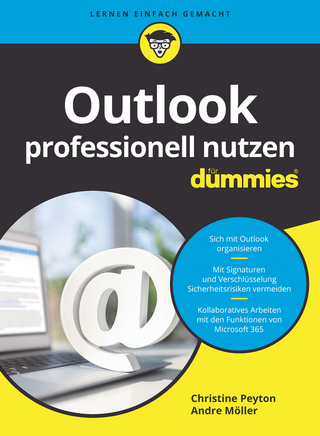
Machine Learning with R
Packt Publishing Limited (Verlag)
978-1-80107-132-1 (ISBN)
Purchase of the print or Kindle book includes a free eBook in PDF format.
Key Features
The 10th Anniversary Edition of the bestselling R machine learning book, updated with 50% new content for R 4.0.0 and beyond
Harness the power of R to build flexible, effective, and transparent machine learning models
Learn quickly with this clear, hands-on guide by machine learning expert Brett Lantz
Book DescriptionMachine learning, at its core, is concerned with transforming data into actionable knowledge. R offers a powerful set of machine learning methods to quickly and easily gain insight from your data.
Machine Learning with R, Fourth Edition, provides a hands-on, accessible, and readable guide to applying machine learning to real-world problems. Whether you are an experienced R user or new to the language, Brett Lantz teaches you everything you need to know for data pre-processing, uncovering key insights, making new predictions, and visualizing your findings. This 10th Anniversary Edition features several new chapters that reflect the progress of machine learning in the last few years and help you build your data science skills and tackle more challenging problems, including making successful machine learning models and advanced data preparation, building better learners, and making use of big data.
You'll also find this classic R data science book updated to R 4.0.0 with newer and better libraries, advice on ethical and bias issues in machine learning, and an introduction to deep learning. Whether you're looking to take your first steps with R for machine learning or making sure your skills and knowledge are up to date, this is an unmissable read that will help you find powerful new insights in your data.What you will learn
Learn the end-to-end process of machine learning from raw data to implementation
Classify important outcomes using nearest neighbor and Bayesian methods
Predict future events using decision trees, rules, and support vector machines
Forecast numeric data and estimate financial values using regression methods
Model complex processes with artificial neural networks
Prepare, transform, and clean data using the tidyverse
Evaluate your models and improve their performance
Connect R to SQL databases and emerging big data technologies such as Spark, Hadoop, H2O, and TensorFlow
Who this book is forThis book is designed to help data scientists, actuaries, data analysts, financial analysts, social scientists, business and machine learning students, and any other practitioners who want a clear, accessible guide to machine learning with R. No R experience is required, although prior exposure to statistics and programming is helpful.
Brett Lantz (DataSpelunking) has spent more than 10 years using innovative data methods to understand human behavior. A sociologist by training, Brett was first captivated by machine learning during research on a large database of teenagers' social network profiles. Brett is a DataCamp instructor and a frequent speaker at machine learning conferences and workshops around the world. He is known to geek out about data science applications for sports, autonomous vehicles, foreign language learning, and fashion, among many other subjects, and hopes to one day blog about these subjects at Data Spelunking, a website dedicated to sharing knowledge about the search for insight in data.
Table of Contents
Introducing Machine Learning
Managing and Understanding Data
Lazy Learning – Classification Using Nearest Neighbors
Probabilistic Learning – Classification Using Naive Bayes
Divide and Conquer – Classification Using Decision Trees and Rules
Forecasting Numeric Data – Regression Methods
Black-Box Methods – Neural Networks and Support Vector Machines
Finding Patterns – Market Basket Analysis Using Association Rules
Finding Groups of Data – Clustering with k-means
Evaluating Model Performance
Being Successful with Machine Learning
Advanced Data Preparation
Challenging Data – Too Much, Too Little, Too Complex
Building Better Learners
Making Use of Big Data
| Erscheinungsdatum | 10.07.2023 |
|---|---|
| Verlagsort | Birmingham |
| Sprache | englisch |
| Maße | 191 x 235 mm |
| Themenwelt | Informatik ► Office Programme ► Outlook |
| Informatik ► Theorie / Studium ► Künstliche Intelligenz / Robotik | |
| ISBN-10 | 1-80107-132-2 / 1801071322 |
| ISBN-13 | 978-1-80107-132-1 / 9781801071321 |
| Zustand | Neuware |
| Haben Sie eine Frage zum Produkt? |
aus dem Bereich


